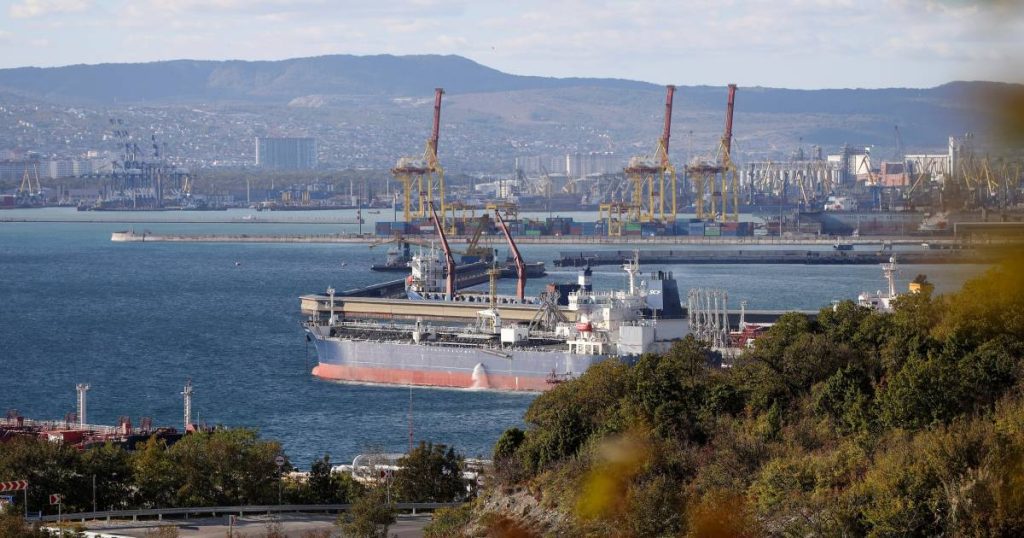The member states of the European Union agreed, after long negotiations, to set a ceiling for the prices of Russian oil transported by sea. This was announced by the Czech presidency this evening.
The Europeans want to force Russia to sell its oil to third countries at a maximum price of $60 (57 euros) per barrel. The last market price of a barrel of Urals oil from Russia was about $65 (62 euros).
War machine financing strike
The measure comes on top of a European ban on the import of Russian oil by sea, which goes into effect on Monday. Both measures should affect the financing of Russia’s war machine in Ukraine. For example, Russia, the second largest exporter of crude oil, has received 67 billion euros from oil sales to the European Union since the beginning of the invasion. This is more than the Kremlin’s annual military budget.
Concretely, member states are now preventing European companies from providing services that enable the transportation of Russian oil, which is selling for more than $60 a barrel. The action is being carried out in coordination with international partners within the G7: the United States, the United Kingdom, Canada and Japan.
Effect
Western countries could have an impact on Russian oil supplies to third countries such as India and China because they control important support services. For example, the G7 countries currently provide insurance services for 90 percent of the world’s goods. The European Union is also a major player in maritime cargo transportation.
At the same time, it is still possible for Western shipping companies and other service providers to bring Russian oil to third countries, as long as the oil is sold at a lower price. This would somewhat stabilize energy markets and provide relief to poorer countries. “This price ceiling will directly benefit emerging economies and developing countries,” said European Commission President Ursula von der Leyen in response to the agreement.
To respond to market developments, the price cap will be reviewed every two months. The Russian oil price as quoted by the International Energy Agency (IEA) will be used as a reference. The ceiling must always remain at least five percent below the reference price.
Poland bid
There has been consensus at the European level on the principle of a price cap for some time, but in recent days Poland has been trying to push the cap price lower. With the support of the Baltics, the country paid a maximum of US$30 (€28.5) per barrel, a level close to production costs, which are estimated to be between US$20 and $40 (€19, 38) per barrel. barrel.
Every dollar counts. Every dollar we can negotiate down means about $2 billion less revenue for Russia.
“Every dollar counts,” said Estonian Prime Minister Kaja Kallas. “Every dollar we can negotiate down means about $2 billion less revenue for Russia.” Finally, the Poles and Balts gave up trying for the day. As part of the agreement, according to Klaas, a ninth sanctions package against Moscow will soon be drawn up.
A price cap of about $30 has met objections from countries with large shipping industries, such as Greece and Malta. They feared that the ultra-low price could encourage shippers to relocate if Russia refused to sell its oil for less.
a look. Earlier, European agreement was also found on the approach to gas prices
Unlimited free access to Showbytes? Which can!
Log in or create an account and never miss a thing from the stars.

“Total coffee specialist. Hardcore reader. Incurable music scholar. Web guru. Freelance troublemaker. Problem solver. Travel trailblazer.”






More Stories
Moroccan military spending is declining, and Algerian spending is accelerating
Rats on board freighter delay kiwi season in Zesbury.
A French village sells its house for one euro, despite a condition